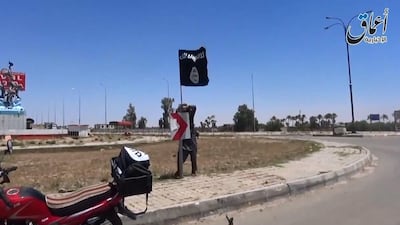Despite the prolonged US-led coalition bombing campaign, ISIL has recently expanded the area of Iraq under its control. In the wake of these advances, fingers of blame have been pointing in every direction. Democrats continue to blame George W Bush for beginning the war, while Republicans blame Barack Obama for abandoning Iraq.
What is most disturbing is the degree to which the finger pointers have let politics trump history. Republicans and Democrats share responsibility for Iraq’s dismal state of affairs.
The initial fault for this mess must be placed at the doorstep of the Bush administration. They lied the US into the war, dismantled Iraq’s institutions and then badly mismanaged the occupation, attempting to restructure governance by introducing a flawed system of sect-based representation.
The Obama administration also erred. Mr Obama inherited not only the war and the occupation, but an agreement his predecessor had negotiated with the Iraqis requiring US forces to leave at the end of 2011. However, America did not prepare well for that departure.
In September 2011, Zogby Research Services was commissioned to do a poll of Iraqi, Iranian, US and broader Arab public opinion in advance of the US departure. What we sought to learn was how all sides viewed the war and their expectations for Iraq following the US withdrawal. The results were disturbing.
There were deep divisions among Iraq’s major groupings: Sunni Arabs, Shia Arabs and Kurds. In the US, there was a significant partisan divide.
When we asked “are Iraqis better off or worse off than they were before American forces entered the country?”, we found that Iraqis were conflicted, with about half of both Shia and Sunni Arabs saying that they were “worse off”, while 60 per cent of Kurds said they were “better off”. On the US side, 58 per cent of Republicans said Iraqis were “better off”, but only 24 per cent of Democrats held this view.
When we looked more closely at how the war had affected certain areas of life in Iraq, the division again came through clearly. Kurds said their lives had improved in every area considered, while overwhelming majorities of Sunni and Shia Arabs said conditions had worsened.
Judging from their respective views, it would appear that Republicans and Democrats were looking at two different realities, with Republicans seeing the war’s impact as positive and Democrats largely judging the war as having made life worse for Iraqis.
When we asked what emotion they felt when contemplating the departure from Iraq of US forces, three-quarters of Americans said they were “happy”. But this was shared by only 22 per cent of Iraqis, with another 35 per cent saying they were worried and 30 per cent saying they felt both emotions. While a majority of Shia Arabs and Kurds were optimistic about the post-occupation future, almost two-thirds of Sunnis were pessimistic.
The reasons behind this mixed Iraqi mood became clear when we looked more closely at the concerns they had for the post-withdrawal period. Almost six in 10 Iraqis said they were concerned that the following would occur: “civil war”, “the country will split into parts”, “increased terrorism”, “economic deterioration”, and the fear that Iraq “may be dominated by a neighbouring country”.
Examining how Iraqis viewed issues close to home was also instructive. While six in 10 Iraqis wanted a democracy, they didn’t believe that democracy would work in their country.
At the end of 2011, America left an Iraq that was deeply divided. After decades of ruthless rule, Iraqis had endured an invasion and occupation, and suffered from terror and ethnic cleansing, and while the trappings of a democracy had been set up, it remained in a gestational state. Iraqis appeared to both want the occupation to end, but had great concerns about what was to follow.
The problem for Iraqis was that Americans wanted an end to the war – only 22 per cent were willing to stay “as long as was needed”, according to the poll. At the same time, it appeared that while most of Iraq’s Arab neighbours were neither equipped to help, nor would their help have been welcomed, Iran was willing and eager to work with allied parties and militias to fill the vacuum left by the American departure.
The American people wanted to wash their hands of the situation they were leaving behind, and the US military, exhausted by almost a decade of two failed wars, was not interested in continuing to occupy the country.
By not fully backing the more inclusive candidacy of Iyad Allawi to be prime minister, and by deferring instead to Iran’s preferred candidate, Nouri Al Maliki, the US helped sow the seeds of the current sectarian conflict. As it turned out, the dust had barely settled after the US forces’ departure before Mr Al Maliki intensified his crackdown against Sunni Arab leaders, deepening the already substantial divide.
Even while American leaders were celebrating the end of the war and speaking glowingly of Iraq’s new democracy, signs were already pointing to serious problems on the road ahead.
The bottom line: stop pointing fingers. There’s enough blame to go around.
James Zogby is the president of the Arab American Institute
On Twitter:@aaiusa


